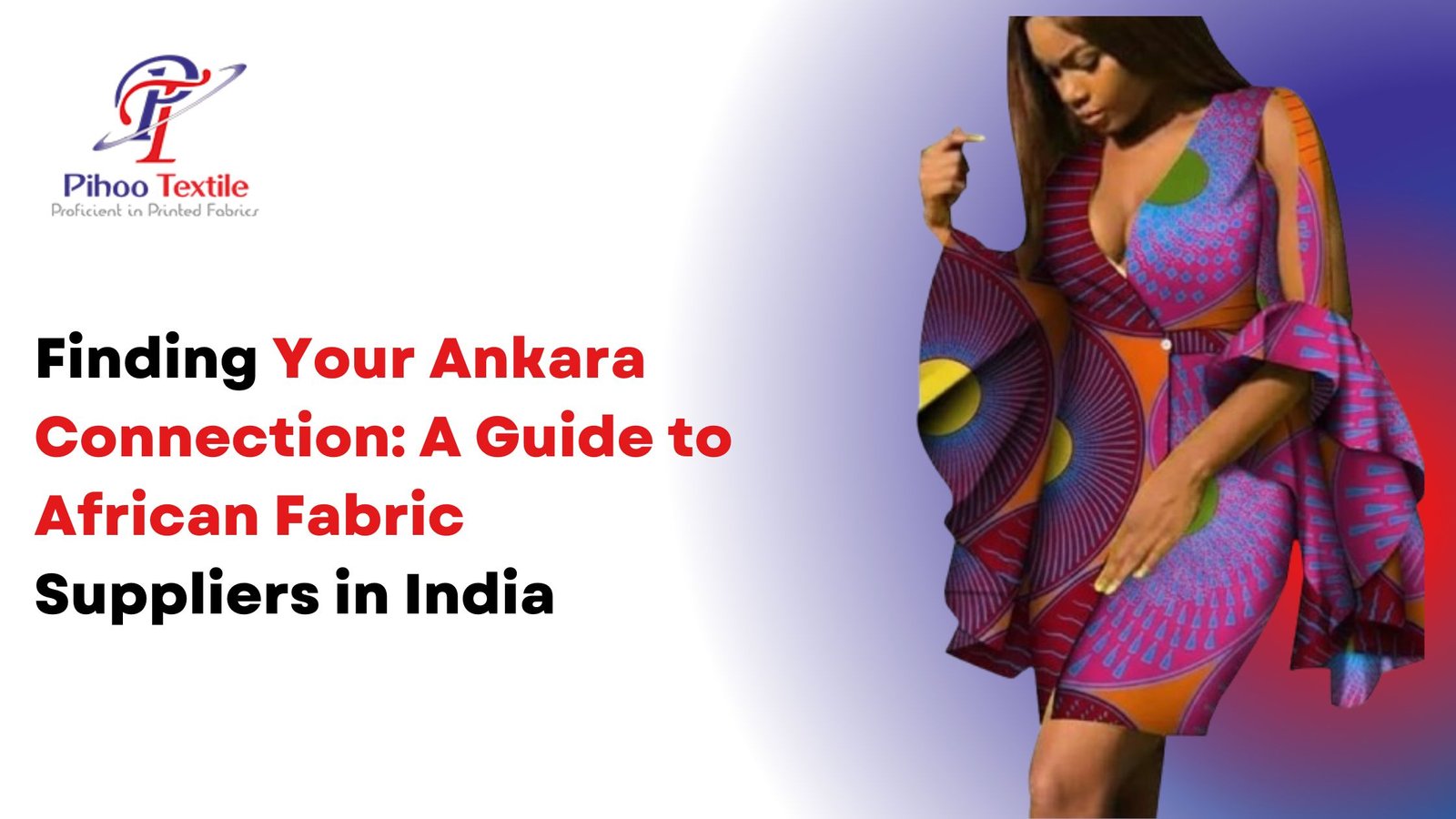Finding Your Ankara Connection: A Guide to African Fabric Suppliers in India
Are you searching for genuine African-printed fabric or reliable Ankara suppliers in India? As the demand for colorful, vibrant African prints continues to soar in the Indian market—for both fashion and home décor—the path to finding trustworthy, high-quality suppliers is more important than ever. At Pihoo Textiles, we understand the nuances of connecting designers, retailers, and enthusiasts with authentic African print sources. Here’s your comprehensive, SEO-optimized guide modeled on proven strategies, while adding essential details to help you discover the perfect African fabric connection in India.
Why Choose African-Printed Fabric?
African prints—be it Ankara, Kente, or Kanga—are admired for their rich colors, unique geometric patterns, wax resist textures, and cultural stories. These textiles are not just fashion statements but symbols of heritage and diversity, now increasingly seen on Indian runways and in trendy local boutiques. Whether you’re a designer looking to make a bold statement or a shopper seeking something fresh, African prints bring an unmistakable global flair to Indian styling.
Step 1: Start with Smart Online Research
Kickstart your search right where it’s most accessible—the internet. Use specific keywords like “Ankara fabric supplier India,” “African wax print fabric wholesale,” or “dashiki fabric Mumbai” on major search engines. Dive into websites that specialize in ethnic fabrics as well as leading B2B marketplaces like IndiaMART, TradeIndia, and Alibaba, which often list Indian importers and distributors.
Tips:
- Look for detailed product descriptions and images.
- Prioritize sites with physical addresses, verified phone numbers, and GST information.
- Browse for supplier reviews and ratings for added reliability.
Step 2: Utilize Trade Directories for Verified Leads
Industry directories are goldmines for supplier data. Search trade-specific platforms, textile associations, or chambers of commerce that catalog Indian businesses dealing in African prints. These listings typically include direct contact information, product portfolios, and sometimes even certifications.
What to Check:
- Inclusion in directories such as Texprocil or the Handloom Export Promotion Council.
- Cross-reference names across other directories to avoid middlemen or duplicates.
Step 3: Visit Local Fabric Stores
Don’t overlook brick-and-mortar fabric retailers—especially in major textile hubs like Surat, Mumbai, or Delhi. Many now feature “world fabric” or “ethnic prints” sections. Speak directly with shop owners who often have insider contacts or can source specialized prints on request.
Why This Works:
- You can verify fabric quality firsthand.
- Building in-person relationships can lead to exclusive recommendations, or even better pricing.
Step 4: Attend Textile Trade Shows and Exhibitions
Textile trade fairs—such as India International Textile Machinery Exhibitions, Surat International Textile Expo, or even FabIndia events—offer a front-row seat to the latest collections. These exhibitions are gathering spots for suppliers, wholesalers, and manufacturers from across India and beyond.
How to Maximize Your Visit:
- Take business cards and be ready to network.
- Explore sample displays for quality and range.
- Attend workshop sessions to gain insights into new trends and sourcing tips.
Step 5: Leverage Online Forums and Fashion Communities
Textile enthusiast forums, WhatsApp groups, and even LinkedIn groups focused on fabric trade have become go-to spaces for discovering trusted suppliers. Sites like Reddit (r/fabrics, r/fashionreps), or regional communities on Facebook, are bustling with sourcing discussions and peer recommendations.
Community Insight:
- Ask questions about supplier reliability, latest price trends, and import duties.
- Offer to share your own experiences to build rapport and trust.
Step 6: Contact Suppliers Directly and Ask for Samples
Once you’ve created a shortlist from your research, reach out to suppliers through email, phone, or even social media profiles. Request detailed catalogs and, whenever possible, physical fabric samples. This not only helps you evaluate authenticity, vibrancy, and print quality, but also gives you a feel for the supplier’s responsiveness and professionalism.
Don’t Forget:
- Ask about minimum order quantities, custom design options, textile certifications (such as GOTS or OEKO-TEX), and shipping capabilities.
- Clarify payment terms and delivery expectations upfront.
Step 7: Evaluate Suppliers and Build Long-Term Partnerships
After you’ve assessed the samples and compared costs, reputation, and service, choose suppliers that meet your quality benchmarks and align with your sourcing values. Building a strong, long-lasting relationship with a supplier is essential—repeat business often leads to better deals, faster turnaround, and priority access to new prints or limited editions.
What to Compare:
- Quality consistency across repeat orders.
- Transparency in supply chain and ethical sourcing.
- Ability to fulfill bulk and urgent requirements.
Bonus Steps for Designers and Entrepreneurs
Explore Local Manufacturing and Printing Collaborations
India’s textile industry is renowned for its own traditional handicrafts and state-of-the-art digital-printing capabilities. Partnering with an Indian manufacturer that can print on demand using imported African designs can give you a cost and logistics edge, with easier control over color matching and fabric quality.
Source Wholesale Direct from Importers
Larger importers in Gujarat, Mumbai, and Delhi usually offer competitive pricing for bulk orders. This is ideal for small businesses or fashion labels looking to reduce per-unit costs for African print fabrics.
The Pihoo Textiles Advantage
At Pihoo Textiles, we bridge the cultural worlds of Africa and India—bringing you authentic, ethically sourced Ankara, Kente, Real Wax, and Kaftan prints, along with transparent service and competitive pricing. Our extensive catalog caters to ambitious designers, bustling retailers, and passionate home sewists alike.
Why Choose Pihoo Textiles?
- Direct import relationships with West African and Ghanaian mills.
- Custom colorways, exclusive collections, and regular new designs.
- Rigid quality assurance and eco-conscious processes.
- Strong logistics network for quick fulfilment across India.
Final Tips: Elevate Your Ankara Connection with Confidence
- Confirm Authenticity: Always cross-check product origin, print quality, and supplier certifications.
- Negotiate Flexibly: Discuss pricing, terms, and exclusive arrangements for repeat orders.
- Value Relationships: Nurturing supplier trust pays off in access, pricing, and service.
Conclusion
As African prints cement their place in the Indian style landscape, sourcing them reliably is key for any successful venture. Whether you’re entering the world of Ankara for the first time or expanding your range, use these actionable steps to guide your journey. And remember—Pihoo Textiles is always here to help you make the most vibrant, high-quality connections between Africa and India for your fabric needs. Discover your perfect print—and let your style tell a global story!


